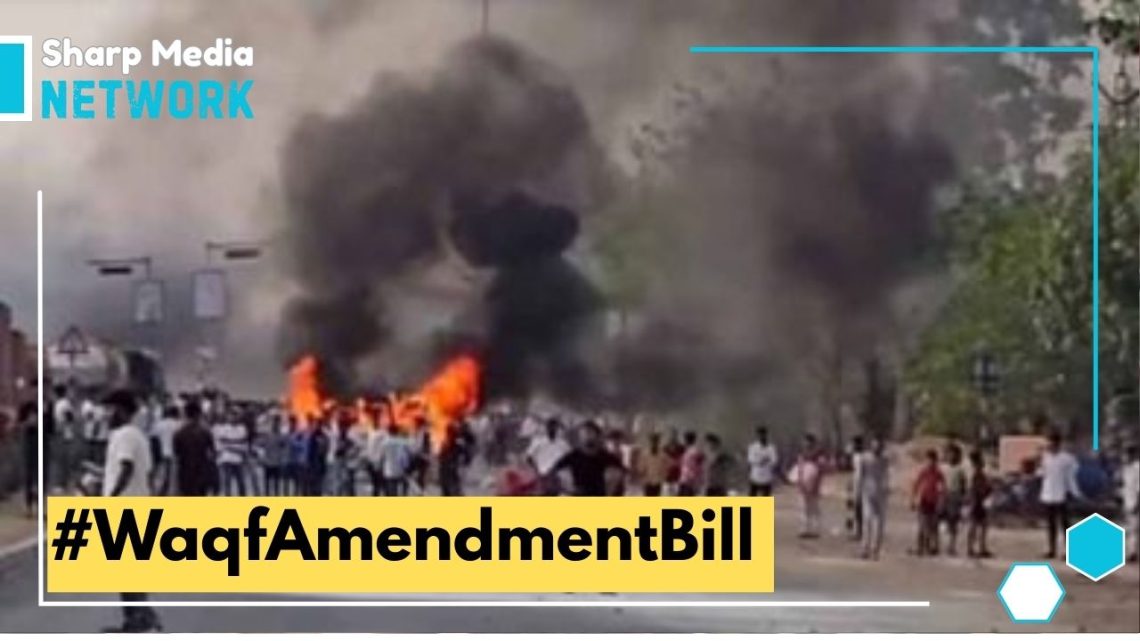
Waqf Amendment Bill: A Rising Tide of Saffronization Sparks Deadly Unrest in West Bengal, India
April 13, 2025As India’s Modi-led government pushes forward with its Hindutva-driven agenda, violent repercussions are erupting across the country—most recently claiming three lives in West Bengal.
The aggressive push by the Modi-led Indian regime to enforce the RSS-inspired Hindutva ideology is sparking unrest nationwide. The latest violence in West Bengal’s Murshidabad district—triggered by protests against the recently amended Waqf Act—has left three people dead and dozens injured.
The clashes began when demonstrations in the Jangipur area turned violent. Protesters set a police vehicle ablaze, vandalized several others, and even targeted the office of Trinamool Congress MP Khalilur Rehman. Train services were disrupted as thousands blocked tracks, demanding a rollback of the controversial Waqf Amendment Act.
Police confirmed the arrest of 118 individuals connected to the violence. Clashes intensified when protestors hurled stones at the police and torched official vehicles. In response, West Bengal’s authorities imposed Section 144, restricting public gatherings, and temporarily suspended internet services in the area. Twenty-two more people were later detained under these emergency measures.
On the same day, demonstrators blocked National Highway 12 at the Shajurmore crossing near Dhulian. According to a police source, attempts to remove the roadblocks led to stone-pelting, followed by the burning of a police jeep and a motorbike.
Additional arrests were made in other parts of the district, including 70 from Suti and 41 from Samserganj. Meanwhile, nearly 5,000 people blocked railway tracks, causing two trains to be cancelled and four express services to be diverted. A railway official reported damage to a crossing gate and described how he was escorted away by police after being stopped by protestors.
Notably, the protestors appeared to have no visible leadership or political affiliation. “There were no flags, no leaders,” MP Khalilur Rehman stated, highlighting the spontaneous and decentralized nature of the outrage.
Under Islamic law, a waqf refers to property donated for religious, educational, or charitable purposes. The recent changes to the Waqf Act have sparked fears among Muslims that their community’s rights to religious endowments and sacred spaces are under threat.
Critics argue that Prime Minister Narendra Modi’s government is intensifying efforts to “saffronize” the nation—aligning all state institutions, from the police and army to the bureaucracy, with Hindu nationalist ideology. This shift, they say, is systematically marginalizing religious minorities.
Rahul Gandhi has openly warned about the exclusionary trajectory of the Modi government, stating that after Muslims, Christians and Sikhs may be the next targets. His comments reflect a broader concern that India’s democracy is becoming increasingly fascist, with minorities living in constant fear for their lives, property, and religious freedoms.

